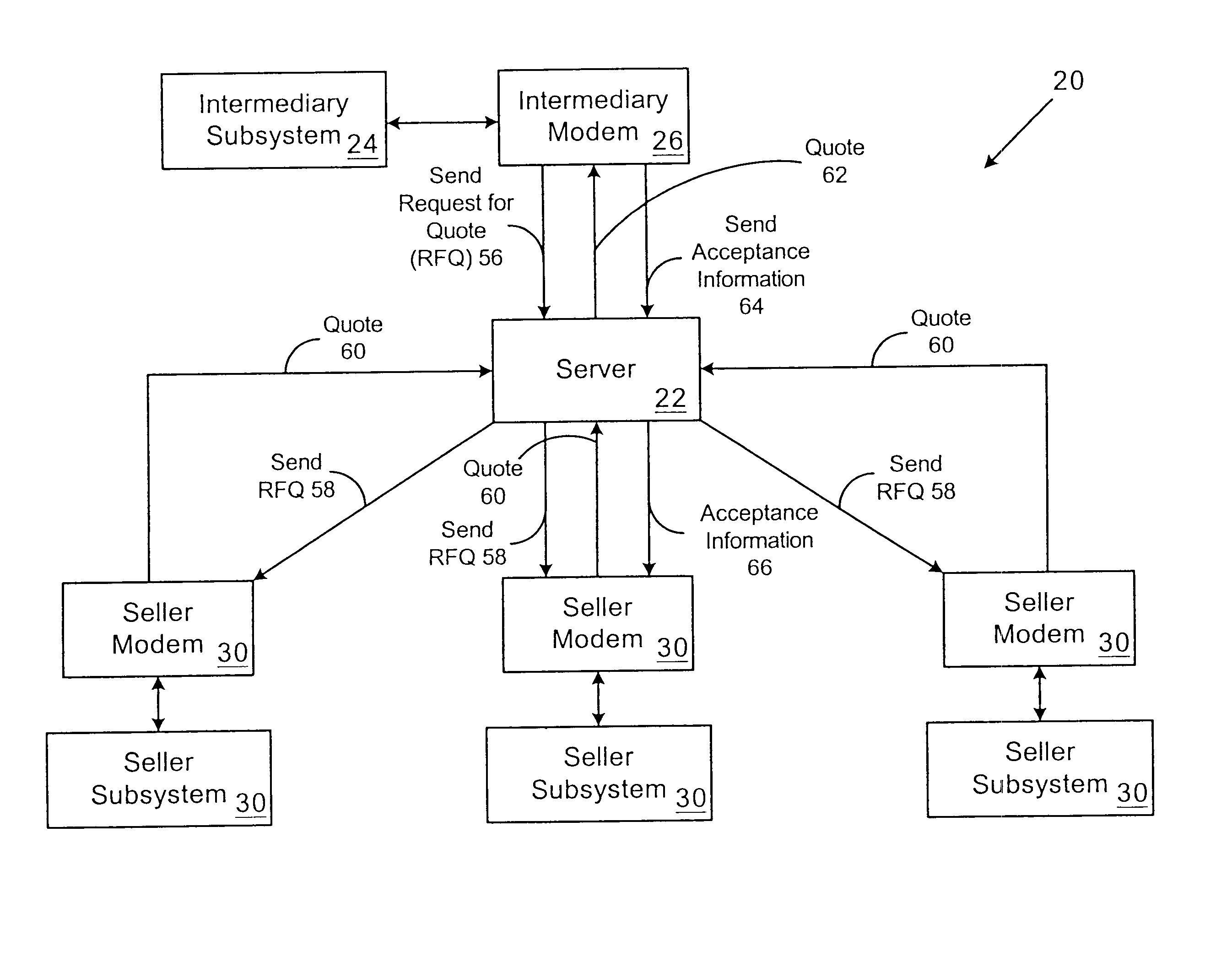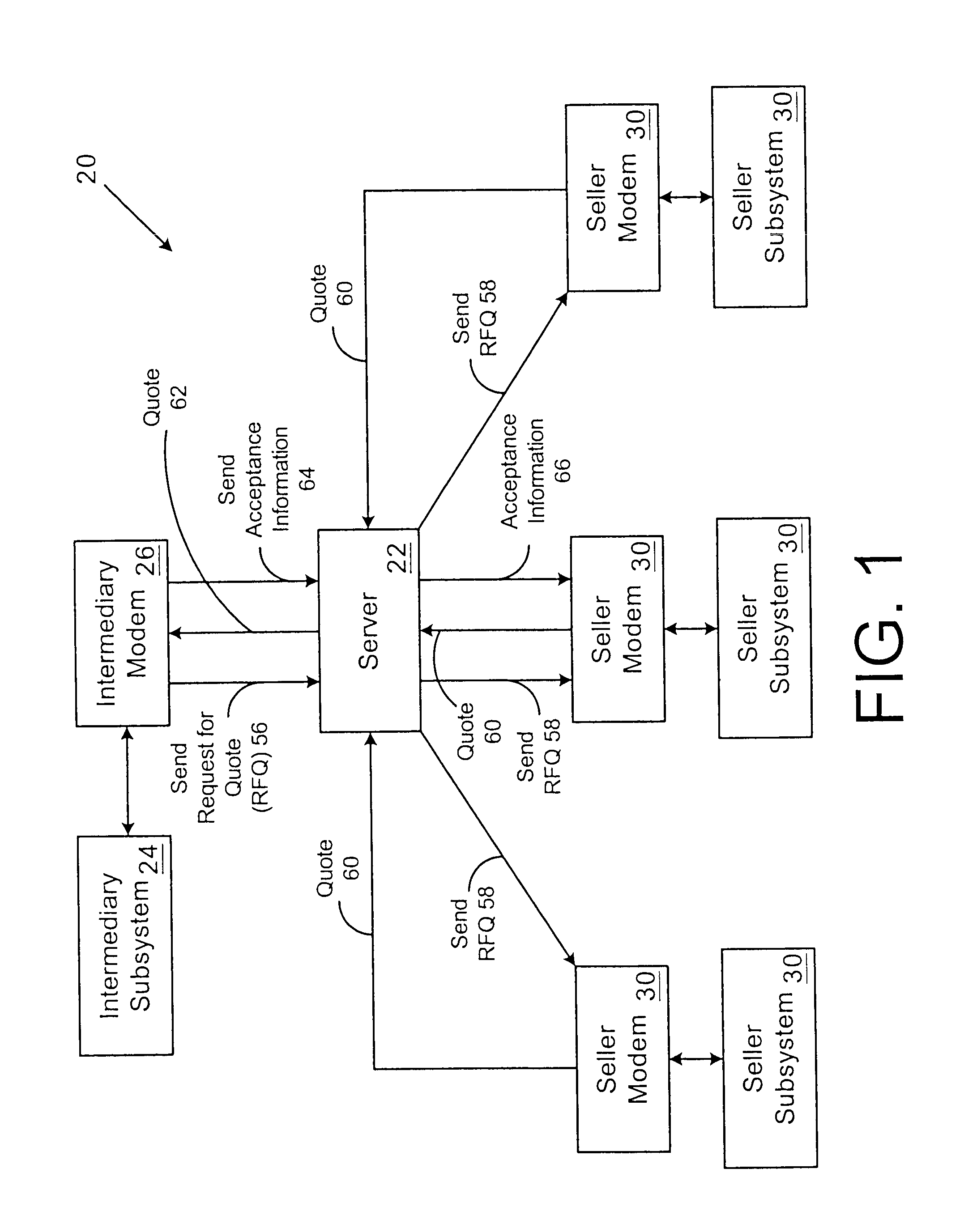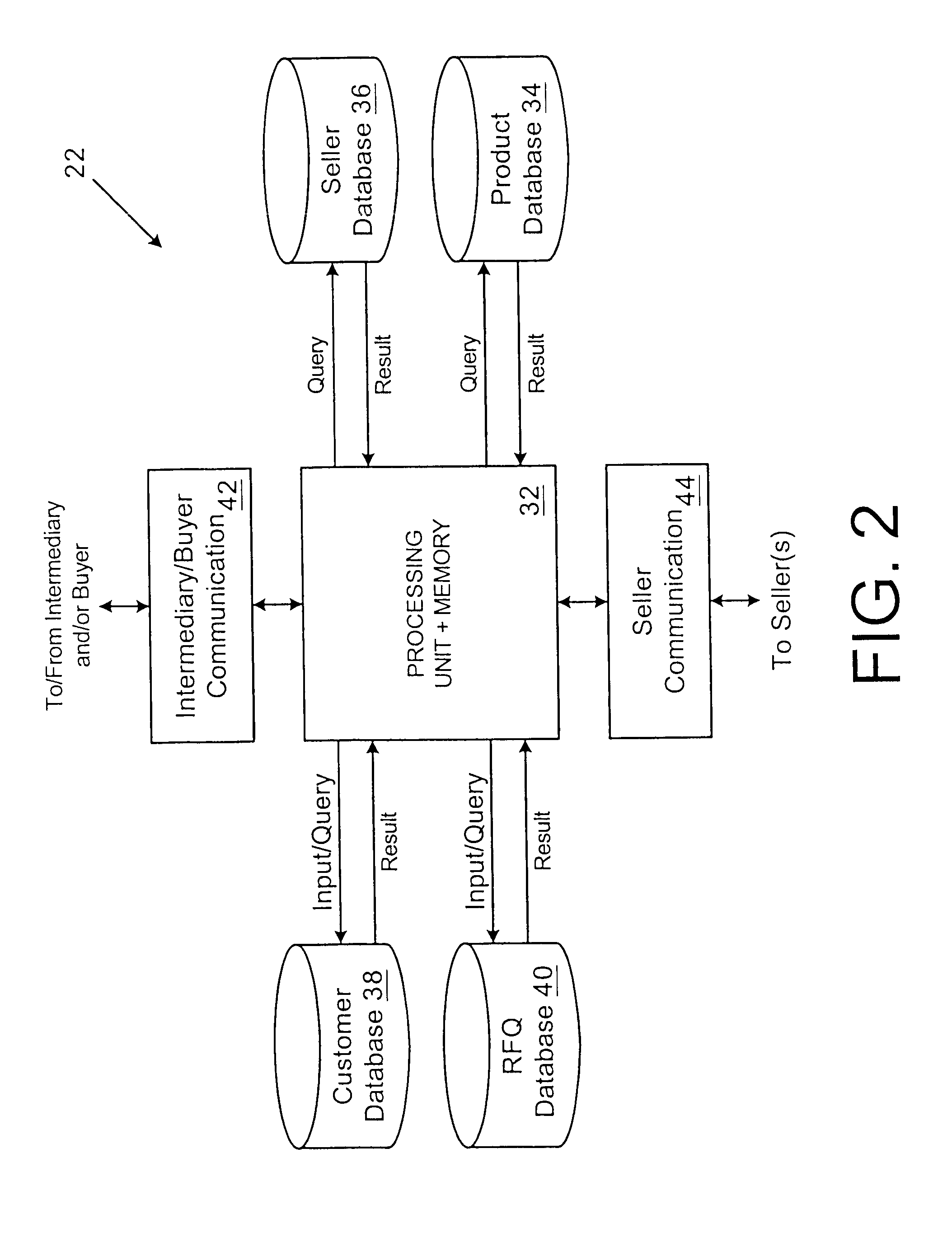Apparatus and process facilitating customer-driven sales of products having multiple configurations
a technology of multiple configurations and processes, applied in the field of apparatus and a process for facilitating customer-driven sales of products having multiple configurations, can solve the problems of sellers being deterred from using customer-driven systems, marginal or unqualified, and existing customer-driven systems have some drawbacks, so as to facilitate customer-driven sales and facilitate the purchase
- Summary
- Abstract
- Description
- Claims
- Application Information
AI Technical Summary
Benefits of technology
Problems solved by technology
Method used
Image
Examples
first embodiment
[0034]FIGS. 1 through 3 together illustrate a first embodiment of the inventive apparatus and process. The apparatus and process of the first embodiment are used to facilitate the purchase of a product having multiple possible configurations, such as an automobile, and are intended to be used by an intermediary and one or more sellers to facilitate a product purchase on behalf of a customer. An intermediary is a professional customer, such as a bank, credit union, auto broker or other automobile-buying professional, and in some cases the intermediary and the customer may be the same entity, for example when the intermediary is a corporate fleet auto customer buying automobiles on behalf of a corporation. The involvement of an intermediary, such as a bank or credit union, provides assurance to both customers and to sellers that the other party to the transaction is “credible”, that is, able to complete the transaction. The inventive process is customer-driven, meaning that the custom...
second embodiment
[0057]FIG. 7 illustrates a second embodiment of the inventive apparatus. The apparatus of the second embodiment is similar to the apparatus of the first embodiment, except that the second embodiment includes a customer subsystem 160 connected to the server 22 via a customer modem 162. The customer subsystem is as shown in FIG. 3. The principal difference between the apparatus of the first and second embodiments is that, in the second embodiment, the customer uses the customer subsystem 160 and customer modem 162 to interact with the server 22. The customer uses the product database 34 to configure one's own vehicle, instead of simply providing the information to an intermediary and allowing the intermediary to configure a vehicle.
[0058]The additional process steps in the second embodiment are outlined in FIG. 7. At step 164, the customer has configured their vehicle using the product database 34 and transmits the final product and customer information to the server 22. The server tr...
third embodiment
[0062]A third embodiment of the apparatus uses the apparatus of FIG. 1, except that the intermediary subsystem 24 is as shown in FIG. 9. As shown in FIG. 9, the intermediary subsystem comprises a processor with memory 46, a communication controller 50, an interface controller 52, and a user interface 54, all three of which are connected to the processor. A storage device 48 is also connected to the processor, and the storage device 48 contains a second product database 198. The intermediary subsystem also includes software that allows the subsystem to communicate with the server. One example of suitable communication software is a web browser such as Microsoft Internet Explorer Version 4.0 with associated plug-ins. The plug-ins enable interaction with the second product database 198 from within the web browser.
[0063]The principal difference between the apparatus of the third and first embodiments is the location of the product database. In the first embodiment, the product database ...
PUM
 Login to View More
Login to View More Abstract
Description
Claims
Application Information
 Login to View More
Login to View More - R&D
- Intellectual Property
- Life Sciences
- Materials
- Tech Scout
- Unparalleled Data Quality
- Higher Quality Content
- 60% Fewer Hallucinations
Browse by: Latest US Patents, China's latest patents, Technical Efficacy Thesaurus, Application Domain, Technology Topic, Popular Technical Reports.
© 2025 PatSnap. All rights reserved.Legal|Privacy policy|Modern Slavery Act Transparency Statement|Sitemap|About US| Contact US: help@patsnap.com



